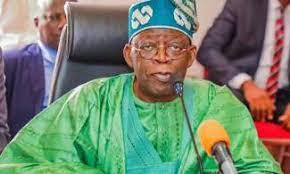Last week, Nigeria woke up to the disturbing news of a possible takeover of Etisalat, one of the big four telecommunication companies in Nigeria by some commercial banks to which the Telco is indebted to the tune of $1.7 billion (over N500 billion depending on which foreign exchange window you are using). Etisalat Nigeria was said to have secured a total of $1.7 billion medium term syndicated loan facility with a consortium of Nigerian banks namely: Zenith Bank, Guaranty Trust Bank, First Bank, United Bank of Africa, Fidelity Bank, Access Bank, Ecobank, Keystone Bank, First City Monument Bank, FSDH Merchant Bank, Mainstreet Bank, Stanbic IBTC Bank and Union Bank.” Th e loan, which reportedly involved a foreign-backed guaranty bond, was for Etisalat to fi nance a major network rehabilitation and expansion of its operational base in Nigeria. However, current economic challenges in the country and other industry-related problems ( some of which are self-infl icted) may have pushed Etisalat into a tight corner with its creditors, as it is unable to pay off its debts. Good enough, Etisalat has since admitted the debts and confi rmed it is discussing with its creditors resolve the matter. Th e Nigeria Communication Commission (NCC) and Central Bank of Nigeria (CBN) have also intervened to fi nd an easy way out of the fi nancial dispute.
Th ere are concerns that if current negotiations with its banks fail, the assets of Nigeria’s fourth largest telecommunications provider may be acquired by its creditors. But Etisalat’s debt burden is only a pointer to a number of things going wrong with the Telcos.
How are the Telcos faring? Following the successful auction of telecoms licences and the fi nancial fortunes by operators in over 10 years of their existence in Nigeria, many have assumed that all is well and the industry has been left, presumably, on auto-pilot and largely on its own with little oversight even by the NCC. Th e fact is that all is not well with the industry and its players! Th e major reason the gains made in the sector have not been reversed is the resilience of both operators and the Nigerian consumers who have continued to accept all forms of charges thrown at the them by telcos and have even found new ways to spend more money on services like data despite economic challenges. Apart from cost of powering masts and other telecom infrastructure, capital fl ight, lack of inventiveness and massive investment in a number of frivolities especially in the marketing and sponsorship departments, telcos in Nigeria have been largely stagnant and doing the same things across segments of the market. Telcos have not been able to increase Average Revenue per User (ARPU) across segments of the market in the last 12 months.
Th eir marginal revenues is largely eroded by losses due to destruction of infrastructure by insurgents and other forms of sabotage in the country; forced upgrade of systems that were earlier left to deteriorate and fi nancial commitments to feel-good round tripping of top executives and me-too marketing campaigns that are largely low on strategic thinking and as such hardly deliver Return On Investment. MTN recorded its fi rst annual loss in 20 years after the N330 billion Nigeria fi ne. Recall that heads have rolled at the company as a result of the carelessness that warranted the fi ne and the reckless handling of the lobby to have the fi ne reduced by some of its infl uential executives. Recall that MTN agreed to pay a fi ne of N330 billion ($1.1 billion), reduced from $5.2 billion, in June last year after a prolonged legal battle to end a dispute in Nigeria over missing a deadline to cut off unregistered SIM cards. Airtel has probably the worst industrial practice among telcos in Nigeria with the highest number of casual workers and documentedcases of abuse of employees, most of them Nigerians, living at the mercy of mostly expatriate Indian owners.
Globacom is proudly Nigerian but has a legendary status in disrepute for unwholesome industrial practices and well documented indebtedness to consultants and media owners. Case for Nigerian consumers Th ere are over 80 million unique mobile users in Nigeria out of an estimated 184.6 million people. Mobile penetration is put at around 40.5%. Th e number of smartphone users increased from 4 million to 15.5 million between 2011 and 2016. Nigerians spend 193 minutes every day consuming media contents on mobile phones, making the country the most “mobile” country in the world. Over 76% of all internet traffi c in the country comes via mobile. Yet, the telcos treat the average Nigerian consumer as an afterthought.
It is not clear how much of impact the telcos are having on the lives of ordinary Nigerians. Lesson for the Telcos In the event that Etisalat’s assets are taken over by the banks, about 21 million of its subscribers are at the risk of experiencing disruption in the quality of services and thousands of Nigerian workers, who may not have taken part in the many frivolities and senseless deals that are partly responsible for the Etisalat’s near bankruptcy, would be made to bear the brunt of job losses and other challenges.



